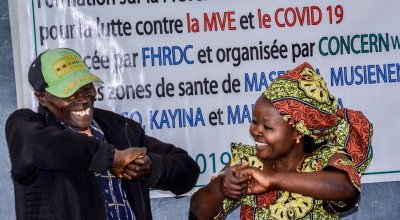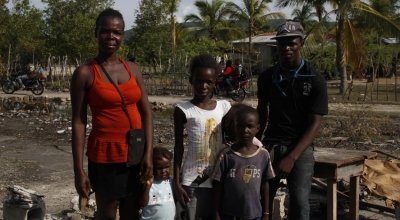
Read our 2024 annual report

Knowledge Hub
Hurricane Matthew: Haiti's road to recovery
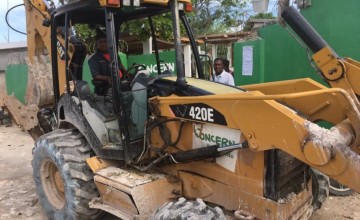
Our digger is back in action, helping communities get on the move after last month's disaster.
In 2008, Concern Worldwide brought a backhoe – a type of mechanical digger – to the Haitian island of La Gonâve. It would be used to transform an important road between the island’s commercial centre, Anse-à-Galets, and the community of Les Étroits. The two places are only about seven miles apart, but back then a motorbike ride between them could take as long as two hours if rainwater churned up the route.
The devastating earthquake of 2009 – which killed more than 200,000 people – set the work back, but by the summer of 2011 it was finished. A route once known as The Hell Road was renamed The Sweet Road.
Last month,disaster struck Haiti again. Hurricane Matthew left thousands dead and many more homeless. La Gonâve was badly hit, and the disaster brought severe flooding.
Now, seven years after it arrived, the backhoe is back in action.
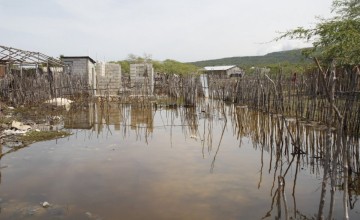
Rebuilding roads - and lives
Right now the digger is being used to repair 2.2km of road on La Gonâve. Most of this is the critical route between Anse-à-Galets and Points-à-Raquettes, the island’s two main towns. While machinery like the backhoe will do much of the heavy lifting, Concern is also employing many local people, including some whose means of earning money was destroyed by the hurricane.
A kilometre of road between Anse-à-Galets and the town of Palma will also be rebuilt. This road is crucial; with a main market in Palma, many rely on the road for business and trade.
Concern has been giving out aid on La Gonâve, but this has been a tough challenge.
“The work is made very difficult by the state of the roads, which makes transporting supplies — or even just getting our teams out and about — very challenging,” says Peter Doyle, Concern’s Emergency Response Manager.
We have to use a mixture of road and sea travel, but travel times can be very long, especially as we have to transport supplies in sail boats. Then supplies have to be offloaded on smaller boats as there are no wharfs in many places.
Starting from scratch
Concern has given supplies to thousands of people. Basic toiletries, blankets, tarpaulins, and tablets that make dirty water safe to drink will help the people of La Gonâve begin the recovery process. But Peter warns there is still much work to be done:
The recovery process will take months, if not years. Many families have lost everything and so will have to start from scratch again. We need to get people into safe shelters and provide them with opportunities to restart their livelihoods so that they can back up on their feet.
Concern will soon be giving out more aid on the island, and there are plans to offer more local people paid work. Our experts have been checking the scale of damage to infrastructure, sanitation and water facilities, so they can be repaired. We will also help families repair damaged homes.
Though the recovery process will be long, we’re ready to support communities on La Gonâve as they rebuild their lives after the devastating impact of Hurricane Matthew.
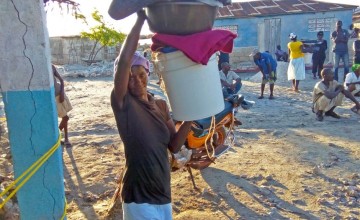
Donate now
Help communities in Haiti rebuild their lives.



